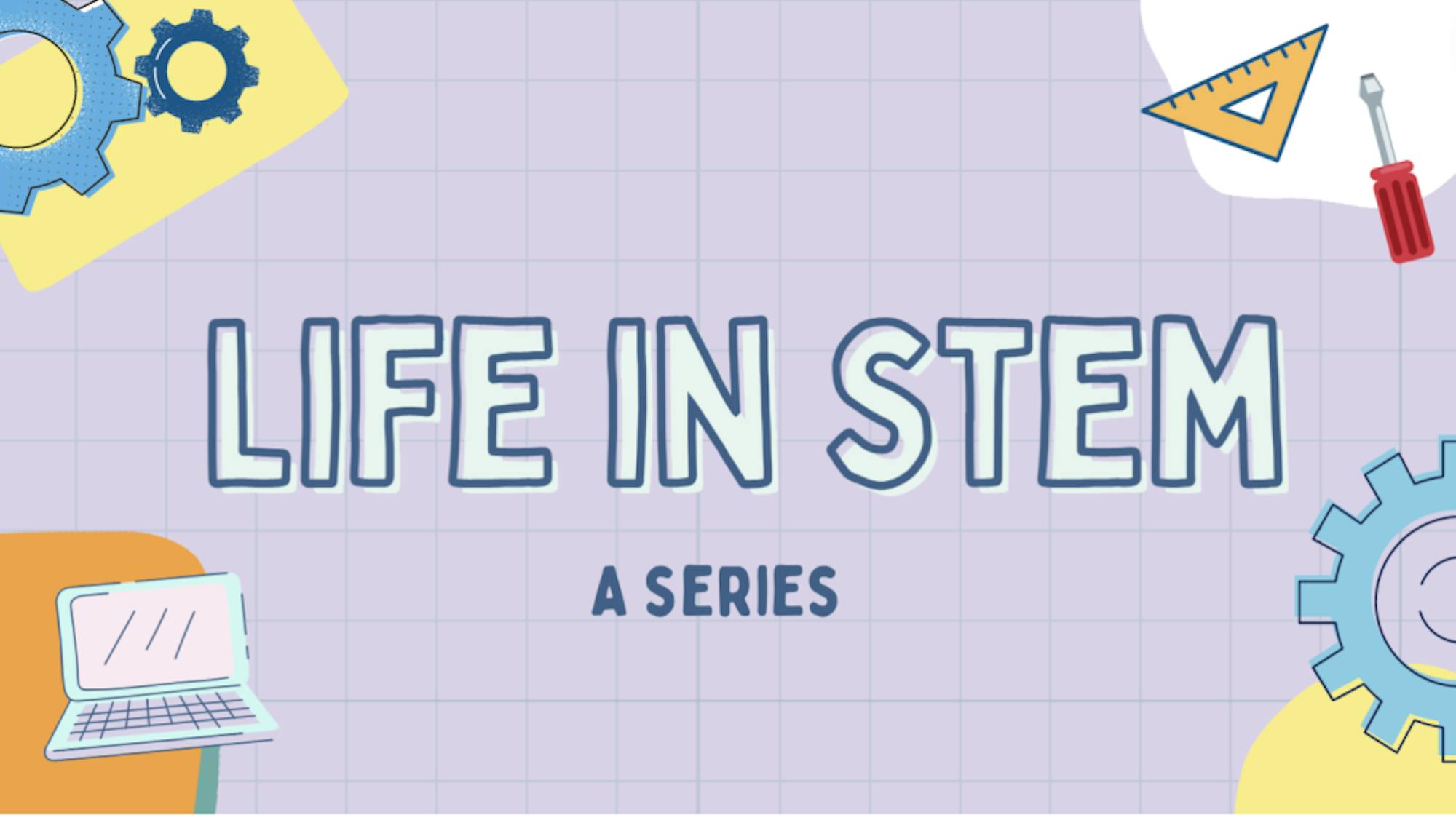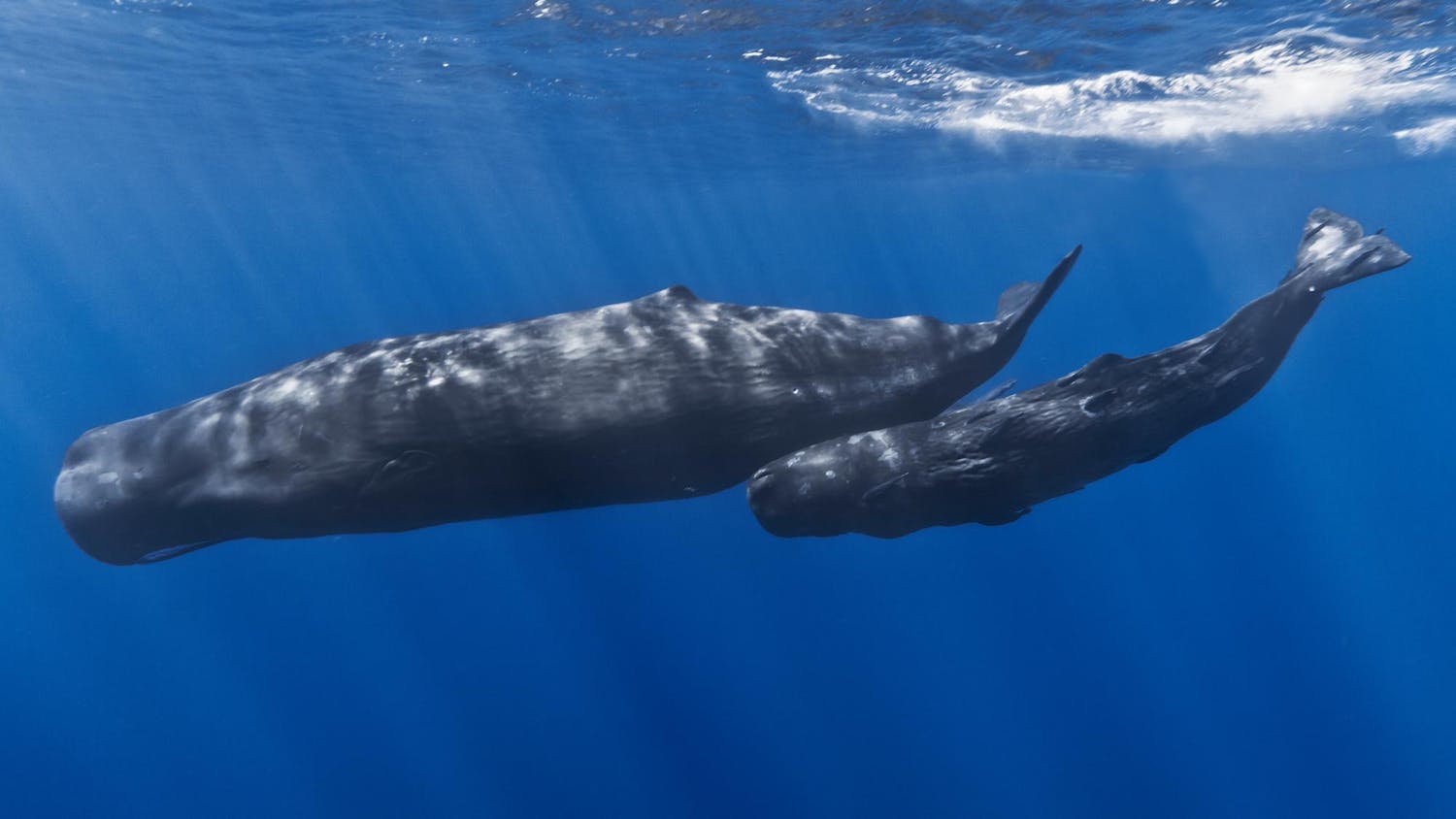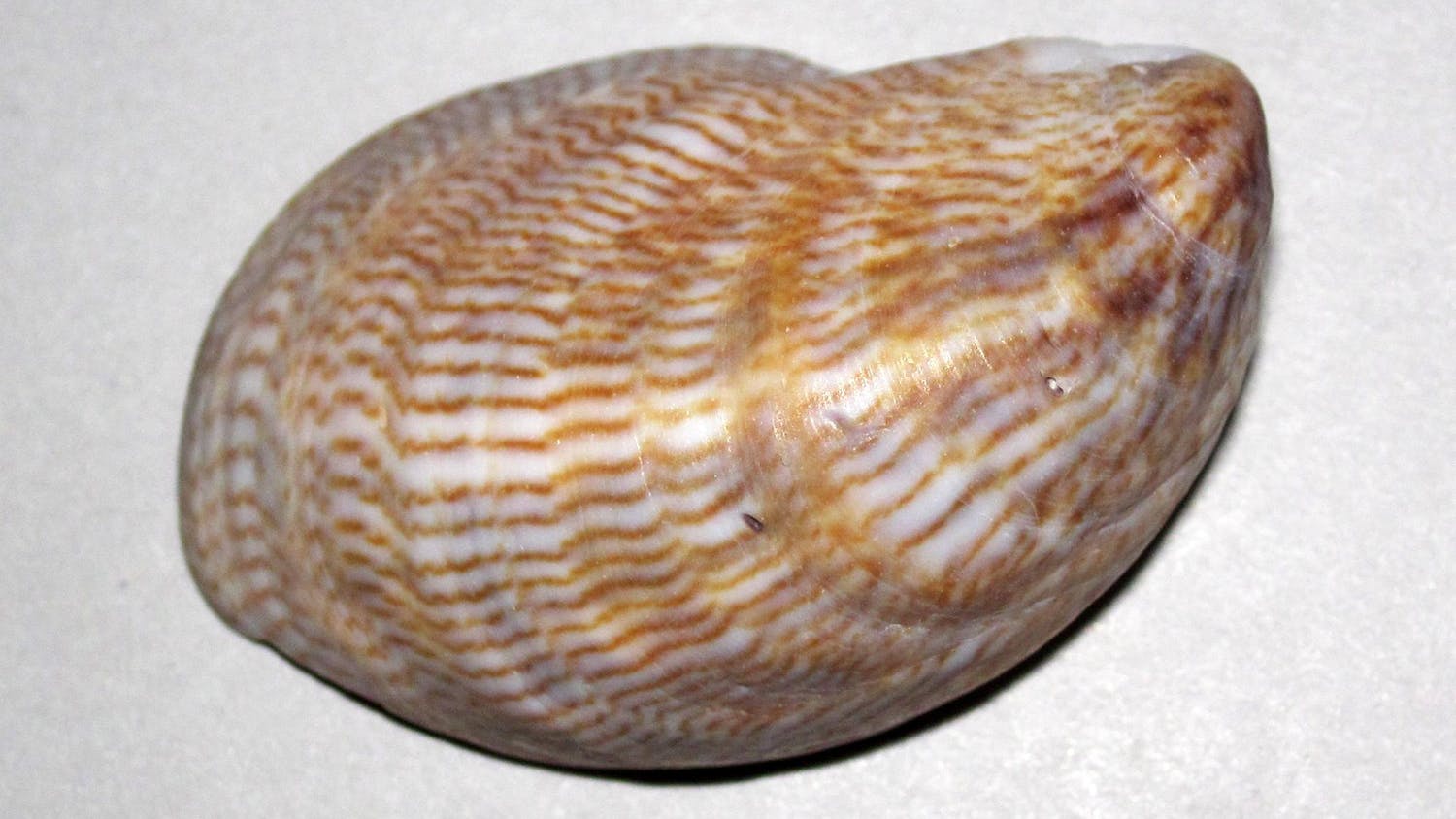The Daily sat down with biology and community health major Dan Nguyen (A’24) for a conversation about water, sanitation and hygiene in global health research and his involvement with the Laidlaw Scholars Program at Tufts.
This interview has been lightly edited for length and clarity.
Tufts Daily: Who are you?
Dan Nguyen: My name is Dan Nguyen. I use the he series, and I’m a junior studying biology and community health. I'm planning to pursue an MD/MPH, a dual-degree. I’m originally from East Longmeadow, Mass., which is a small town outside of Springfield, Mass. Outside of my academics, I’m pretty involved with the Vietnamese Students Club, as well as Spirit of the Creative, which is the hip-hop and commercial choreography group on campus. I also co-founded the student organizations Tufts Thirst Project in my freshman year and more recently, Tufts Move Up Global, which is the focus of my research this year. And then I also work as a FOCUS pre-orientation leader as well as on the Tufts Dining marketing team, and I’m pretty involved with Asian American Center and I was a Peer Leader last year.
TD: What led you to studying biology and community health?
DN: Originally, I came to Tufts intending on studying biopsychology as well as international relations. I got to the point where I was almost done with those two majors. And I wanted to pursue biopsychology because I had intended on studying neurology. I was pretty inspired by being a caretaker for my grandma. She had Type 2 diabetes as well as Parkinson’s and a mild case of dementia. So I was kind of interested in exploring neurology for my personal connection with neurodegenerative disorders. But then I started taking community health classes, intending to fulfill the IR global health concentration and I took Introduction to Global Health with Dr. Karen Kosinski. I was just really inspired by her lectures and the raw passion she had for this global health field. This kind of made me realize maybe infectious disease is a route of interest that I wanted to take rather than neurology, especially considering things like the COVID-19 pandemic. That really inspired me. And then my former work interning for this organization called Thirst Project, separate from Tufts Thirst Project, I think all of those combinations kind of made me realize infectious disease was more interesting. So ultimately, I changed my major to biology and community health. I wanted to explore the intersections between public health and clinical care and how both of them can work harmoniously to address infectious diseases, which I feel like are going to become a more prominent issue with climate change and more interactions between animals and humans. So yeah, I think it’s a growing field, and I’m really excited to be entering it.
TD: What is the Laidlaw Scholars program at Tufts?
DN: It’s a two-summer research and leadership program. It’s sponsored and funded by this organization called the Laidlaw Foundation, which sponsors a bunch of Tier One research universities to have Laidlaw Scholars pursue research and leadership projects that interest them. For the first summer, it’s more research oriented and the second summer is more leadership oriented. For the first summer, I did infectious disease research with these two faculty mentors, Dr. Patrick Skelly and Dr. Akram Da’darah at the Cummings School of Veterinary Medicine in Grafton. I studied this neglected tropical disease called schistosomiasis, which is a big problem in Sub-Saharan Africa. And it’s really connected to water, sanitation and hygiene, which is the subtopic within global health that I’m pretty well-versed in. I really enjoyed this project and learning all these wet lab techniques, and I’m just really appreciative for the experience.
For this upcoming summer, students need to pursue a Leadership in Action project and it has to be abroad if you’re not an international student or have gone overseas before on your own. I took this global health ExCollege class last semester with Dr. Jennifer Goldsmith and Dr. Anatole Manzi, and I really connected with the latter, because he was really involved with Partners In Health, which is an organization I’ve always been interested in working for. He’s from Rwanda, and we’re working in the community that he was born and raised in, and so I felt pretty good about working with this nonprofit. I have concerns about saviorism and voluntourism and all of these aspects of global health that make me feel iffy entering the field in the first place. But ultimately, I feel really empowered working for this organization. We’re going to be doing health education and neglected tropical disease and malnutrition research while we’re there, and we’ll be doing some preliminary stuff beforehand to make sure that in the limited time we have there, we’re doing as much as we can.
TD: What kind of research are you involved in through the Laidlaw Program?
DN: Schistosomiasis is a parasitic worm disease that’s found in contaminated water. If you’re using contaminated water that’s not treated, then these parasites may be in your water. And so the way you contract the disease is through direct contact with the water. If you wash your hands with it, or if you’re doing laundry, or if you’re cooking with it or if you’re fetching water to bring from a lake to your house, there’s a lot of reasons why you could get into direct contact with water. But fortunately, there is a treatment right now called Praziquantel, a kind of anti-parasitic drug. But there’s a growing concern that the parasites are growing resistant to it. I’ve always been interested in sustainability and addressing things from a preventive lens as a community health major. So I was studying potential alternatives to treatment, potentially vaccine development, and I was studying two different pathways by which maybe the schistosomes — which are the parasitic worms themselves — can be inhibited, as well as their activity. I also studied riboflavin, which is this essential nutrient or vitamin B-12. And I was studying how they uptake it and observing if there was a way where I could inhibit the mechanism by which they uptake it because it’s an essential nutrient, not just for humans, but also for them. I didn’t really have any good results with it, but then I studied this other mechanism through a blood clotting enzyme called thrombin. The worms live in the bloodstream of the human host, and that’s how they acquire their nutrients — through the bloodstream. And I was wondering if we can inhibit thrombin activity. Obviously, the schistosomes don’t want to clog the bloodstream because that will clog and inhibit their access to the nutrients, so I was wondering if we could interfere with that process. Again, I didn’t get really good results, but ultimately, I was able to learn a lot of really interesting wet lab techniques and work in a biohazard safety level 2 lab.
TD: What inspired you to pursue this research?
DN: My parents have been a big inspiration for me. My parents were Vietnamese immigrants, and they fled the country after the war, and they were fortunate enough to immigrate to the States and become U.S. citizens on their own. I was always interested in my background and my family background specifically. And I haven’t been to Vietnam in a really long time, probably since I was six. Obviously, I don’t remember anything. So I hear a lot about Vietnam through my parents’ personal anecdotes, and I just ask them questions, and they just tell me what life was like back then.
Throughout high school, I knew I wanted to pursue a career in STEM and potentially medicine. So I was always asking them about the healthcare system and the healthcare quality there and they would always tell me infectious diseases were a huge issue back then. To this day, this still persists in a lot of other countries, but I think Vietnam is doing better now with its improving healthcare system. They were telling me a lot of infectious diseases came from dirty water and untreated water and there were always worms and parasites. And so you were strongly advised to boil your water, clean your showers because the showers were always infested with worms. I remember one time when I went to Vietnam, there were worms coming out of the shower and I was mortified and petrified by that. So that was a very vivid experience for me. There were so many infectious diseases. Malaria and tuberculosis were both pretty bad back then when they were still in Vietnam. So I had a growing interest in global health and along with my internship with Thirst Project, along with the many community health and biology courses, especially with [microbiology], I just really fell in love with infectious disease [and] global health.
TD: How did you get involved with Move Up Global?
DN: I mentioned briefly earlier how I got connected with it through Dr. Manzi. As a part of the Laidlaw Leadership in Action requirement for the second summer, you have two main options. You can go through a central project, which is a project the Laidlaw Foundation already has established. Or you could do your own independent project. I chose to do the second one. So that meant that I would have to find my own nonprofit or own nongovernmental organization and organize everything myself. I was scrambling to find organizations, but then ultimately, fate brought me to like Dr. Manzi after taking his class. I was really fortunate enough to be able to talk to him and hear his story about how he founded Move Up Global and I felt really inspired by his nonprofit. I really agreed with the mission statement and the objectives the nonprofit wants to do. So I asked him to sponsor me for my Leadership in Action project, and he agreed. So I’m very grateful to him for that.
I really like this organization because they have such a unique and sustainable approach. They focus mainly on schools as hubs of community. You can really disperse a lot of health education and promotion through schools. The children then can bring it to their households and communities. So yeah, the rest is history. I’m currently doing the preliminary research right now before I go to Rwanda in July, so I’m very excited.
TD: How will Move Up Global be involved in your research? What outcomes do you hope to achieve in going to Rwanda?
DN: Move Up Global has community partners. They’re called IREME, and they currently work on the ground in Rwanda, and they’ll help us guide our research. They understand the needs better than I can. I hope when I’m there, I can provide labor. I don’t want to interfere and tell them what I think is best for them because that’s not appropriate. They’ll obviously provide the essentials — housing, food, stuff like that. And then I’ll just be providing my labor in exchange and doing as much as I can while I’m there.
In terms of outcomes, I’m hoping the work we do is sustainable and uptaken by the community. Of course, that’s only if we make sure that, as Americans, we don’t interfere with the work that they’re doing and the systems they have that are working there. I’m hoping that the neglected tropical disease and malnutrition prevalence rates decrease as a result of our work and decrease absence due to illness. Also, I’d like to improve academic performance because in this specific community, they’re not performing very well on the Rwandan national exam. We know from past literature that health is super important for education, which can ultimately impact your life. Children should have a right to health and a right to education. And it’s unfortunate that that’s not the case right now.
TD: What have you learned thus far? What do you hope to learn this summer?
DN: I didn’t really have much luck studying the two pathways that I studied, just because of statistical insignificance. There’s still much more research to be done. My research is more about drug development, not necessarily vaccine development. And with antibiotics, there’s always a concern for resistance. For a more preventative approach, I think we need to focus more on water, sanitation and hygiene, but again, that’s going to take a long time because it’s time consuming and resource constraining to provide clean water, proper sanitation and proper hygiene to every single person around the world. So obviously, you need more temporary approaches like drugs. So this research is still very important and I’m very grateful for this experience.
I’m working on two main projects: the malnutrition and neglected tropical disease project. We’re studying the prevalence rates. That’s the statistical analysis side of my research. For the intervention program that I’m doing, the second project is about health-promoting schools. The World Health Organization has this framework of health-promoting schools, especially in low and middle-income countries and it incorporates a lot of health education into school curriculum. We’re hoping that the schools that we’re working with can uptake this curriculum. We’re seeing, what are the current gaps in the curriculum and how we can incorporate more health education and health promotion in it? So with that, we’re kind of developing summer camp programming for the kids and introducing health education slowly but surely, and then hopefully, we can get the schools to incorporate this health promotion school framework into their curriculum.
TD: What do you hope to do after Tufts?
DN: After graduating, I’m planning to pursue the four-year MD/MPH program at Tufts University School of Medicine. I’m pretty interested in specializing in infectious disease and global health. For residency, I’m probably going to do [combined internal medicine and pediatrics] or internal medicine and then complete a residency or a fellowship in infectious disease. I definitely want to stay connected to the nonprofit sector because it’s what I’ve been doing throughout college, and I really like the work that they’re doing. With clinical care, I want to combine my global health advocacy within the NGO sector or even the intergovernmental sector, like the United Nations or the World Health Organization.






